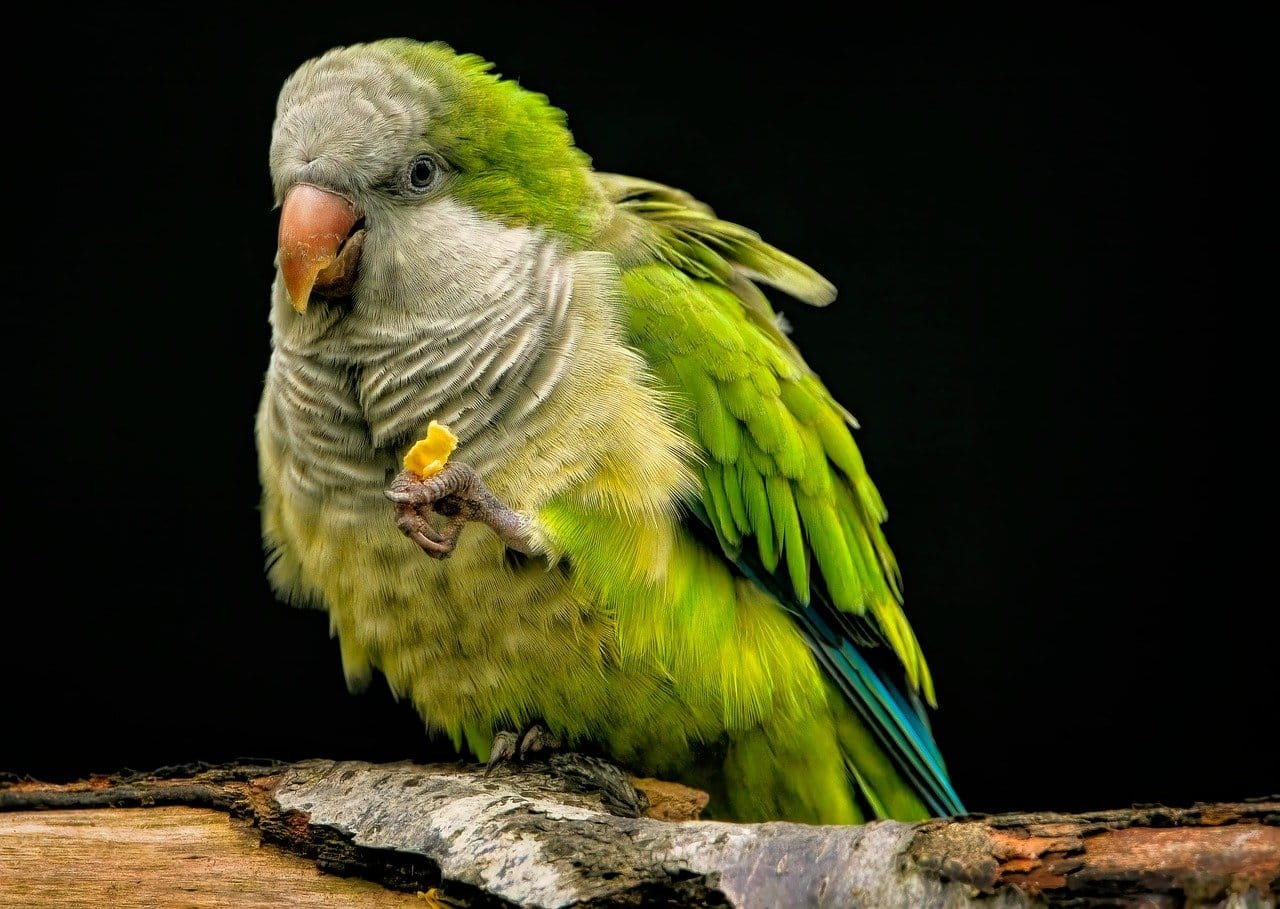The Quaker Parrot, also known as the Monk Parakeet, is a small, vibrant bird celebrated for its social personality and unique nest-building behavior. Native to South America, these parrots are highly intelligent and thrive in interactive environments, making them a favorite among bird enthusiasts in the USA.
Distinctive Traits of the Quaker Parrot
- Bright and Beautiful
- Quaker Parrots are primarily green with a pale grey chest and cheeks.
- Their wings and tail feathers feature touches of vibrant blue.
- They are small to medium-sized birds, measuring about 11–12 inches in length and weighing 90–120 grams.
- Nest Builders
- Unlike most parrots, Quaker Parrots construct large, communal nests out of twigs.
- In the wild, these nests can house multiple families and are often reused and expanded over time.
- While they don’t need to build nests in captivity, this behavior reflects their innate intelligence and resourcefulness.
- Social and Chatty
- They are vocal and love to chatter, often mimicking words and phrases with clarity.
- Their engaging personalities make them excellent companions for attentive owners.
Caring for a Quaker Parrot
- Diet
- A balanced diet ensures their health and longevity:
- Staples: High-quality pellets.
- Fresh Additions: Leafy greens, fruits like apples and berries, and vegetables such as carrots and broccoli.
- Occasional Treats: Seeds and nuts in moderation.
- A balanced diet ensures their health and longevity:
- Exercise and Enrichment
- Provide toys that encourage chewing, foraging, and problem-solving.
- Allow daily supervised out-of-cage time for exercise and exploration.
- Engage them in interactive play to strengthen your bond.
- Housing
- A cage at least 24x24x30 inches with a variety of perches is ideal.
- Include accessories like swings, ladders, and chewable toys to keep them entertained.
- Social Interaction
- Quaker Parrots thrive on socialization and need daily interaction to stay happy.
- They can bond with a single person or become family-friendly birds with consistent attention.
Challenges to Consider
- Noise Levels: While not as loud as larger parrots, they can be quite vocal, which may not suit all households.
- Legal Restrictions: Quaker Parrots are prohibited in some states due to concerns about their nesting habits in the wild.
- Lifespan: Living 20–30 years, they require a long-term commitment.
Why Quaker Parrots Are Popular in the USA
Their playful demeanor, ability to mimic speech, and manageable size make them a favorite choice for bird enthusiasts. They are particularly appealing to those seeking a smart, interactive, and social bird.
Is a Quaker Parrot Right for You?
Quaker Parrots are best suited for individuals or families who can dedicate time to their care and social needs. With their lively personality and unique traits, they can bring endless joy and entertainment to the right home.
Explore more about Quaker Parrots and other exotic birds in our Birds section.

